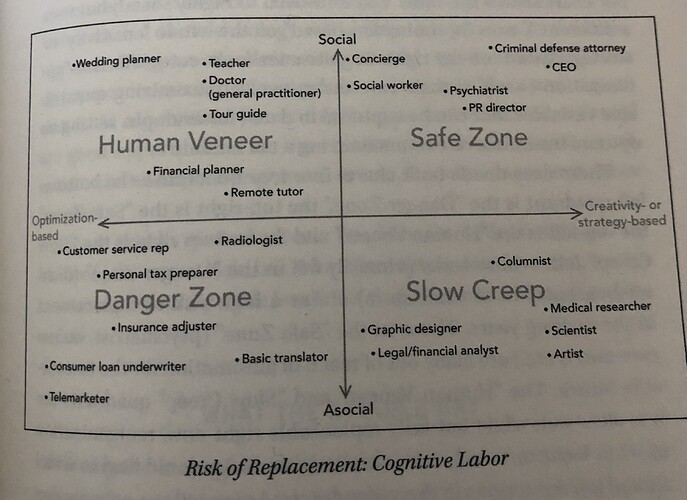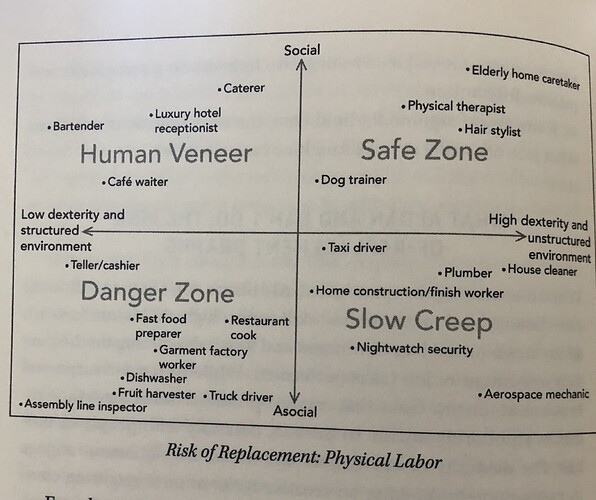I just finished this book by Kai-fu Lee. It’s a great book! I encourage everyone go read it.
Here’s a short excerpt:
But that’s just one of his many conclusions, and it happens to be a controversial one, that China will jump ahead of US in the implementation of AI. Let’s put it aside for a minute. I want to list some of my thoughts after reading this book.
-
AI will be one of a few “general purpose technologies” (GPT’s) that transform the economy. The last few GPT’s include the steam engine, electricity, information technology and now (maybe) AI. That’s in contrast with more narrow purpose inventions like refrigerators for example. Both steam engine and electricity increased the productivity of low skill workers and thus lift their living standards. Already with IT we don’t see the same rising tide lifting all people, and AI will likely be even more unequal in spreading its spoils.
-
Machine learning depends on massive data and will naturally result in monopolies. Biggest firms will have huge advantage over smaller firms.
-
In stock market we may see the biggest caps get much bigger than previously thought possible.
-
Inequality will get worse and we have to watch how politicians react. The current anti-trust framework in the US won’t rein in the big techs because there’s no immediate consumer harm. That means there may not be much policy response at the federal level, leaving local pols putting out patchwork of ill thought out policies. Rent control will spread like wildfire because it’s the most politically convenient.
-
China will likely put out policies that help the rollout of AI, US will likely go the opposite way. Already there’s news SF is exploring regulations to ban facial recognition. As investors we need to increase our bets on Chinese companies.

